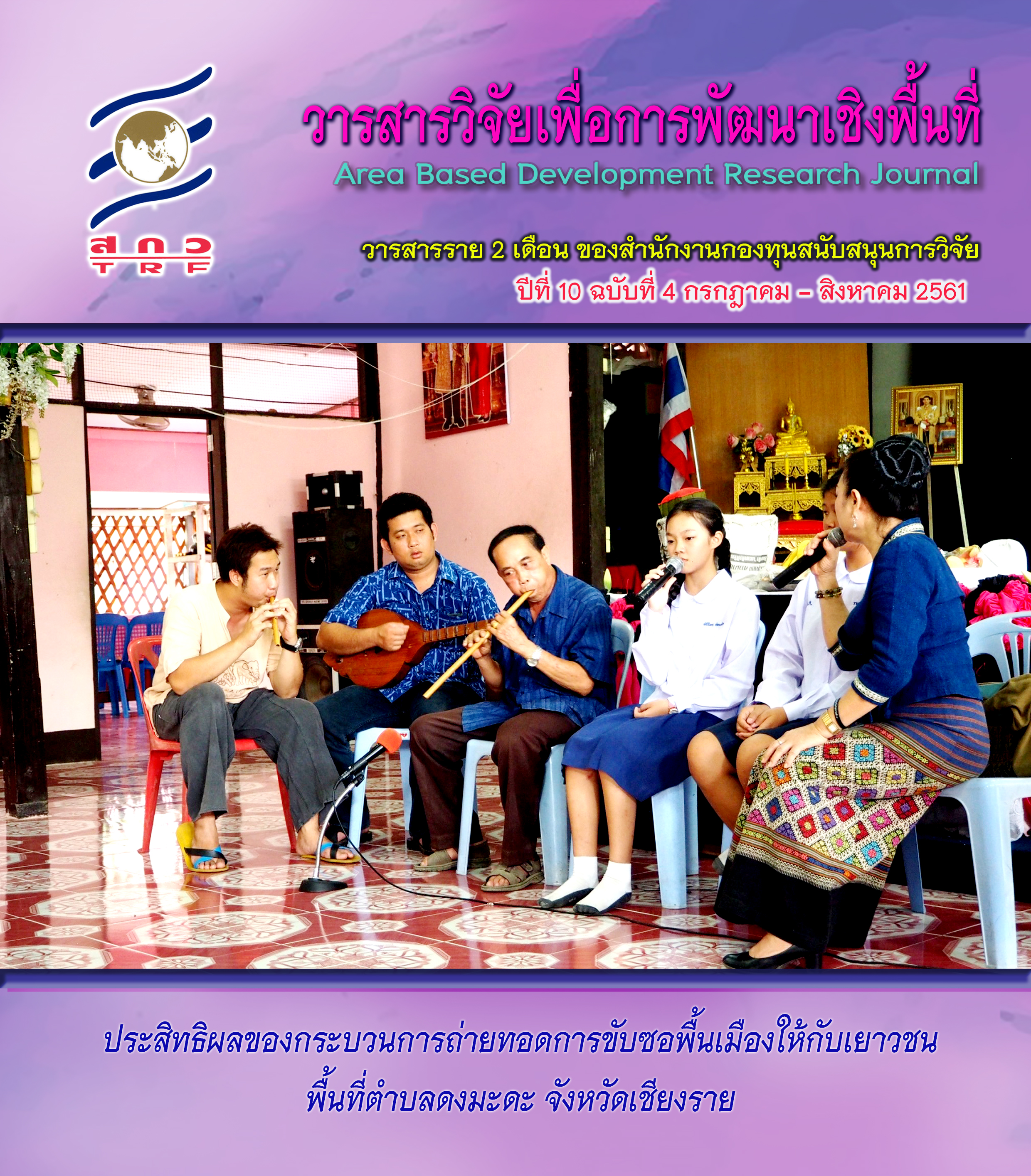ศักยภาพการท่องเที่ยวเชิงอนุรักษ์ปูม้าโดยชุมชนประมง บ้านหยงสตาร์ จังหวัดตรัง
Main Article Content
Abstract
This research aimed to propose the ideas of the eco-tourism for the Blue Swimming Crab (BSC) conservation in order to motivate the fishers. This study was conducted at Yong-satar village, Takham sub-district, Palien district, Trang province, Thailand, where the fishers had experienced in producing the BSC larvae. The study was conducted using Participatory Action Research (PAR) and quantitative researches between November 2016 to October 2017. The results showed that there was potential to promote the eco-tourism for BSC conservation with the BSC fishery. All the fishers agreed to use the crab larvae from the berried females for the tourism activity. The tourists would need to arrange at least 1 week in advance for the cruising trip in order to allow the fishers to arrange their schedules. Yong-satar community had high potential and ready for the eco-tourism for BSC conservation. There were beautiful and suitable releasing sites for BSC larvae and other conservation activities, together with the attractive sites where the cruising route could be arranged. There were also the seafood restaurants with the seaside scenery for the tourists. Last but not least, the Yong-satar community recognized in the eco-tourism activities and was very willing to conserve the BSC stock. All the parties involved in BSC fishery in the community also well cooperated both in eco-tourism and BSC conservation. When the eco-tourism for BSC conservation occurs, it will result in increases incomes for the community. Consequently, there is a strong motivate for sustainable crab conservation. The suggestions were that Yong-satar has high potential and suitable to promote for the CSR activities (Corporate Social Responsibility) or incentive tour of the organizations. The number of tourists should not exceed 30 in order to get the impressive services and do not disturb the way of the community life.
Article Details
Area Based Development Research Journal values copyright protection and licensing to safeguard author rights and facilitate the appropriate dissemination of research. Our policies ensure openness, accessibility, and attribution. Authors retain copyright ownership, and articles are published under a Creative Commons Attribution License (CC BY), allowing sharing, adaptation, and proper attribution. Authors have the freedom to publish under the CC BY license, granting broad reuse and distribution permissions. The journal supports posting articles on third-party repositories, adhering to institutional and funding restrictions. Author guidelines detail copyright and licensing requirements, empowering authors with knowledge about their rights and responsibilities. These policies cultivate an environment of collaboration, openness, and responsible sharing, benefiting authors and the research community while honoring intellectual property rights.


